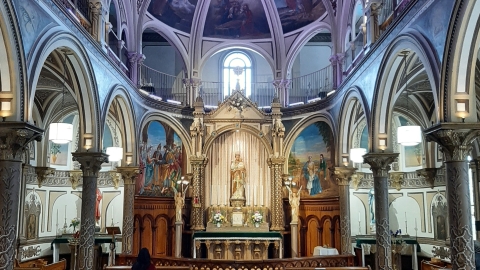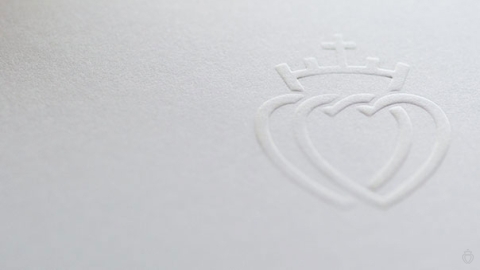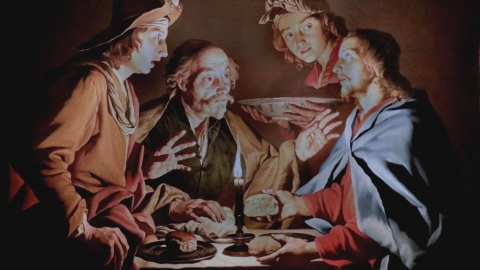The Episcopacy and the Covid-19 Infection

The turmoil caused by the epidemic has multiple consequences. On the Church side, some episcopacies have visibly failed in their duty to defend religion and divine worship.
No doubt the situation requires careful consideration of all the circumstances; it is not a question of taking heedless risks, for oneself or for others, under pretext of religion. But that cannot justify the attitude of several bishops who have submitted to the conditions imposed by the state, which has interfered in Catholic worship in an unacceptable manner.
If Le Figaro Says It
In France, the fate reserved for Catholic worship by the May 11, 2020 government decree on deconfinement, was unjust and contrary to freedom of worship. Certainly this freedom is no longer understood today, since, due to the principle of secularism, it applies without distinction to all religions. But by divine right, only the true religion, the Catholic religion, has this freedom. Other religions can only be tolerated. Only true worship, instituted by Jesus Christ, true God and true man, has rights.
The French government’s decree was unjust, since it allowed for the resumption of a certain social life while excluding that of worship. Attacked by a dozen associations before the Council of State, this decision was judged to be contrary to freedom of worship. This allowed the rapid resumption of Catholic worship, starting on May 23 instead of June 3, the date originally planned.
In this affair, the bishops stood out in their absence. Jean-Marie Guénois quite rightly writes in Le Figaro: “nothing, honestly, would have happened without the tenacity of eleven traditionalist Catholic associations and a political party, the Christian Democratic party.” And he adds: “The conference of bishops as a whole - however perfectly informed of the possibility of the success of such recourse - did not venture to confront the government legally on highly legitimate grounds, freedom of worship.”
The religious columnist notes that “the conference of bishops has lost part of its credibility among many Catholics…Many consider—especially since the spectacular implementation of the decision of the Council of State—that it has lacked courage by not sufficiently coming to the defense of the simple faithful, of whom the bishops are still the pastors, when it comes to a religious right provided for in the Constitution.”
And again: “No need to comment on the conference of bishops hijacking of the legal results when it was obtained by people whom it recognizes so little. It might have been mentioning a ‘parallel’ strategy partly organized with the traditionalist groups! Or a “happy result”: It’s beautiful, but false.”
The conclusion is sadly correct: “The Conference of Heads of Religions in France (CRCF) is now the duly authorized and heeded representative of the State. The Catholic Church, still the most powerful, as understood historically and culturally—before Islam exceeds it—is now reduced to one religion among others in this body founded in 2010…In other words, the government has only one weighty interlocutor: “religions” in strict equality of treatment. We knew that the Catholic Church had lost some precedence in France in public discussions, but this Ascension week undeniably marks a stage of descent.”
But should we expect anything else since the Second Vatican Council’s Decree on Religious Freedom? As Archbishop Marcel Lefebvre forcefully stated, the men of the Church have “uncrowned” Our Lord Jesus Christ. The secular state can only rejoice at this abandonment of the doctrine of Christ as King of individuals, families, and societies.
A Devastating Protocol
In Italy, the opening of worship was negotiated at length between the state and the Catholic episcopacy. These negotiations resulted in a “protocol on the resumption of celebrations with the people,” signed on May 7, 2020 between the President of the episcopal conference, Cardinal Gualtiero Basseti, the President of the Council, Giuseppe Conte, and the Minister of the Interior , Luciana Lamorgese.
The general conditions repeat the now conventional measures: social distancing, the wearing of masks, the systematic use of disinfectant liquids. Places of worship, as well as all worship accessories, must be thoroughly disinfected between each ceremony. It is also requested that churches minimize the presence of concelebrants.
But one provision is not only questionable, but frankly unacceptable. It is point 3.4: “The distribution of Communion must take place after the celebrant and any possible extraordinary ministers have thoroughly cleaned their hands and put on disposable gloves....”
In a document on communion in times of epidemic, Pope Benedict XIV (1740-1758) has already spoken on the question as to whether priests were required to administer the Holy Eucharist to contagious patients, and what means could be used. He mentions some of them which, although they were recommended, were condemned by Rome: the insertion of the host in ordinary bread or between two non-consecrated hosts; using tweezers to place the host in the mouth, or wearing gloves.
This is no longer the opinion of the Italian episcopacy today. It must be said that communion in the hand trivialized this sacred action and while the real presence in the new mass has been strongly devalued. The fact remains that, without flinching, the Italian bishops accepted the wearing of gloves to distribute the Holy Eucharist.
Some bishops have timidly refused. Msgr. Cesare Nosiglia, Archbishop of Turin, said that wearing gloves was not compulsory, but unfortunately added that tweezers could be used to place the host in the hands of the faithful. Other Italian bishops have followed suit.
The measure has not failed to provoke reactions from the faithful and even from priests. The scandal is palpable, some faithful are refusing to take communion under these conditions and some priests went so far as to resign from their posts in protest.
It is encouraging to see this supernatural reaction of priests and faithful in the face of confused pastors who no longer know how to preach Jesus Christ. But this does not take away from the responsibility of the Italian bishops, who, like the bishops of France, have lost a little more of the confidence of their flock.
(Sources : Le Figaro/Diocesi di Torino – FSSPX. Actualités - 28/05/2020)



